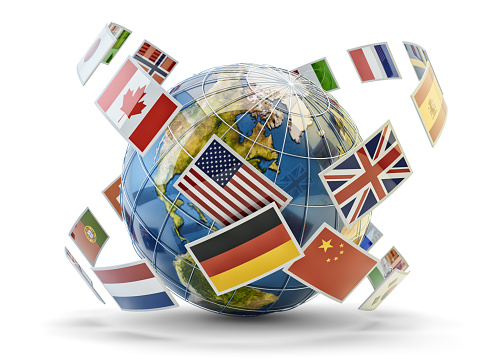Planning a trip can be stressful and time-consuming so you have to do a little research before you leave. Here are some things that should be done before you leave on your international trip so your experience will be smooth and less burdensome.
Preparing for your international trip
Before you leave for your international trip, it is important to prepare as much as you can. Here are a few things you should do: 1. Research the destination country. Make sure you know what to expect before you go, by researching the country you’re visiting. This will help to avoid any surprises while on your trip. 2. Make sure all your paperwork is in order. It is important to have all of your paperwork in order before you leave, including your passport and visa. If something happens while you’re travelling and you need to get help, having all of your documentation will make it easier to do so. 3. Pack the right gear for the climate and weather conditions. Be prepared for different weather conditions, especially if you are travelling to a colder climate. Bring along clothes that will keep you warm and dry, as well as shoes that will grip the ground in case of a slippery surface. Pack any necessary medical supplies in case of an emergency. 4. Arrive early at the airport and check-in online. Arriving early at the airport can save time in line and check-in can be done online if possible. Be sure
Meeting the locals
One of the most important things you must do before you leave for your international trip is to meet the locals. This will help you get a feel for the culture and learn about the local customs. It will also help to avoid any potential problems that could arise while you are away. You should also make sure to pack enough clothing and accessories for the weather in each country you are visiting. It is important to be prepared for anything, including unexpected rain or snow. Remember to pack a raincoat, hat, gloves, and sunglasses, as well as sunscreen if necessary. Finally, be sure to know the emergency numbers for each country you will be visiting. These numbers can help you get help if something goes wrong while you are there.
A packing checklist
Before you leave for your international trip, it is important to create a packing checklist. This will help you to make sure that you pack everything that you need and nothing that you don’t. Some things that you should include on your packing checklist are: medications, passport, visas, tickets, travel documents (driver’s license, passport), money (some countries have currency conversion rates listed in the guidebooks), sunscreen, insect repellent, sunglasses, hats and sunglasses (if needed). Also make sure to pack some comfortable clothing that you can wear during your trip. You may want to pack a jacket and pants in case it gets cold outside or a dress if you plan on visiting a lot of touristy areas. Pack enough clothes so that you can change into something more comfortable if the weather changes while you are travelling. Finally, make sure that you have all of the equipment that you will need while travelling. This includes an electronic device charger (if your device requires one), headphones, a book or something to read, water bottle and snacks.
Budgeting while travelling
Before you leave for your international trip, make sure to budget carefully. There are a few things you will need to account for: airfare, food, transportation, and lodging. Here are a few tips to help you get started: 1. Calculate your expenses by category. Airfare is the biggest expense, so start by figuring out how much you’ll need for airfare and other transportation costs. Once you have that figure, add in other costs like food and lodging. Remember to factor in any taxes that may be applicable. 2. Plan ahead. Make a budget and plan your trip so that you don’t overspend on food or drink. Try to stick to familiar restaurants and eateries so that you won’t have to spend too much money on unnecessary expenses. You can also try booking hotels near your destination or looking for deals online. 3. Rent a car if possible. This will save you money on transportation costs since you won’t have to use public transportation or taxis. Be mindful of gas prices in each country, though, as they can vary greatly from country to country. 4. Travel during off-peak times if possible. This will reduce the amount of traffic congestion and
Getting around in the new country
Before you leave for your international trip, there are a few things you must do. The first thing you will want to do is get a driver’s license in the new country. This is especially important if you will be driving. Without a driver’s license, you may not be able to get around and explore the new country. Another important task before leaving for your international trip is to pack your passport and visa. Make sure to have all of the proper documents with you when you leave so that you wont have any problems getting into the country. Finally, make sure to have your airline tickets and any other documents that will be needed when you arrive in the new country.
Tips for digital safety
Before you leave for your international trip, be sure to take some precautions to ensure a safe and worry-free experience. Here are a few tips for digital safety: 1. Use a VPN when streaming or downloading content. This will help to keep your data private and protect you from being monitored or tracked. 2. Be aware of the local laws in each country you’re visiting. Some countries have laws that restrict what type of content you can access online, and some countries have laws that protect the privacy of digital information. Make sure you know what the law is in each country before you travel. 3. Keep your device clean and virus-free. Make sure to clean your device regularly and use a virus protection program. This will help to keep your device safe from malware and other malicious software. 4. Stay informed about local news and events. Keep up with current events in each country you’re visiting by using online resources or subscribing to local news outlets. This will help to keep you aware of any potential dangers while you’re away.








